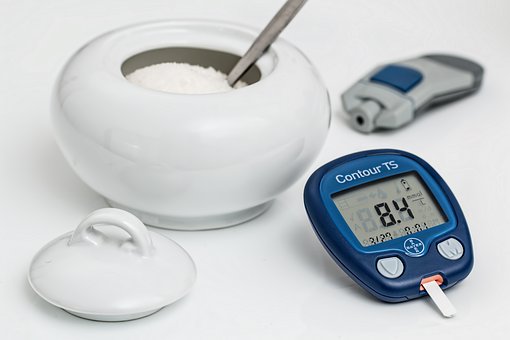Sunday, February 12, 2023
Although stomach gurgles (abdominal sounds) are associated with hunger and the absence of food in the stomach, they can occur at any time, and these rumblings can be associated with health conditions that require treatment. Learn more in this article.
What is it Belly rumbling (abdominal sounds) ?
The rumbling in the abdomen is part of the process of digesting food inside the intestines. It is a sound made by the stomach and intestines. The intestines often gurgle after eating because food moves through them.
Causes of stomach rumbling
1. Intestinal disorders
The intestines move rhythmically as the walls contract and relax to mix food with digestive secretions. When the stomach is empty, receptors in the walls of the stomach sense the absence of food, causing reflexive generation of waves of electrical activity in the intestines.
Abdominal rumbling can occur when there is gas in the intestines or stomach. Gas is a natural occurrence that arises from swallowed air, gas release within the digestive tract, or intestinal bacteria processing foods that cannot be digested. This includes foods that contain carbohydrates.
Foods such as dairy products or wheat can be difficult for some people to digest, which can lead to increased gas and diarrhea, and associated noises.
In addition, belly sounds can also be a sign of hunger. Increased levels of the hormone responsible for the sense of hunger can also cause the intestines and stomach to contract, leading to stomach noises.
2. Diet and lifestyle factors
Belly rumbling may occur if you have eaten a heavy meal, especially if it was high in fat, or had a lot of alcohol before bed.
The diet that increases abdominal sounds can be changed by avoiding soft drinks and foods that contain gases. It is known that beans and some vegetables such as broccoli, cabbage… contain gases, so it is important to reduce their quantity to avoid stomach rumbling and gases.
Reducing certain sugars in your diet, especially fructose and sorbitol (found in fruits and artificial sweeteners), can also help reduce rumbling, and eating less acidic foods (such as citrus fruits, tomatoes, and coffee) may also help reduce potentially embarrassing stomach sounds.
It is important to drink enough water, eat slowly and regularly, and avoid overeating to reduce the symptoms associated with stomach rumbling.
3. Medical conditions
There are some conditions in which abnormal sounds can indicate a health problem, including intestinal obstruction or ileus, which is a condition in which there is a decrease in bowel activity due to the accumulation of gases, fluids, and intestinal contents, a rupture of the intestinal wall, or Crohn’s disease or ulcerative colitis. or food allergy.
Also read: Crohn’s disease and ulcerative colitis: How are they similar? And what do they differ?
Symptoms of stomach rumbling
Abdominal sounds
Abdominal sounds may appear with the following symptoms:
- nausea
- Gases
- vomiting
- bowel movements
- frequent diarrhoea
- constipation
Abdominal pain or discomfort
Increasing intestinal contractions try to push solids, liquids, and air through the narrowing of the intestines, making very loud bowel sounds. Individuals experience mild to severe abdominal pain that occurs inside the stomach or intestines.
Changes in bowel movements
Sitting after eating puts extra pressure on the intestines, so you should get up after meals and be moderately active after eating to reduce abdominal sounds. Infection in the intestines leads to increased muscle activity and spasm, causing pain or abdominal sounds.
Complications of stomach gurgling
Highly vigorous abdominal sounds associated with certain health conditions can cause pain, flatulence, and decreased bowel movement, which requires a doctor’s consultation.
Stomach rumbling treatment
Treatment depends on the cause of the problem, if it is related to health conditions. Normal abdominal sounds do not require any treatment.
It is necessary to drink water, as it helps in digesting food and preventing dehydration. Some foods may cause the formation of abdominal gases. If the intestines and stomach do not stop making sounds, then the number of gas-causing foods such as beans, carbonated drinks such as soda and sparkling water, and foods that contain a percentage of high in fat.
In addition to reducing foods that contain high levels of sugar, as it is difficult for the body to process high levels of sugar at one time, and foods that contain high amounts of acids, as these acids can damage the lining of the intestine and stomach, causing inflammation and pain. and stomach.
Questions Common may interest you
Is rumbling stomach a symptom of the colon?
Colon can cause abdominal rumbling, if abdominal sounds are accompanied by the following symptoms, it is important to consult a doctor:
- Nausea and vomiting
- Diarrhea or constipation
- blood in the stool
- Excess stomach gas
- heartburn
- Unintentional weight loss
Does stomach germ cause rumbling in the abdomen?
Stomach germs do not cause abdominal sounds, but rather stomach ulcers, inflammation of the lining of the stomach, abdominal pain, weight loss and fatigue.
Also read: Stomach germ: from simple symptoms to infection, ulcer or cancer!







